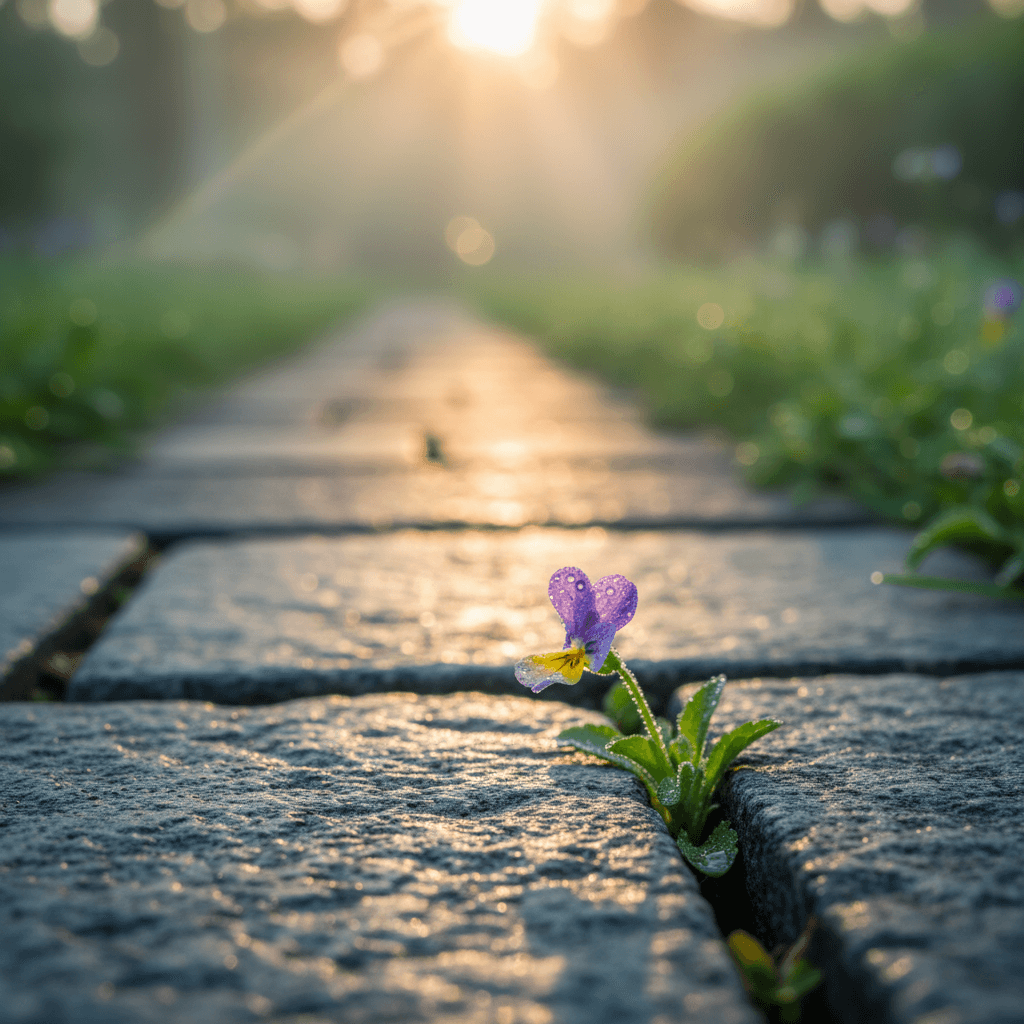Small Joys as Everyday Engines of Strength

Find strength in small joys and they will strengthen you. — Sappho
Lyric Wisdom in a Single Line
At first hearing, the aphorism attributed to Sappho (c. 630–570 BC) feels disarmingly simple: attend to small joys and they will fortify you. Yet, like her surviving fragments, it contains a reciprocal motion—what you nurture, nurtures you. Sappho’s lyric world prized intimate particulars: a glance, the sound of a lyre, the color of a garland. Fragment 31 (“He seems to me equal to the gods…”) shows how a fleeting presence can flood the body with transformative feeling. In the same spirit, this maxim suggests that strength is not always forged in grand victories, but in noticing what is quietly good. Thus, we are invited to practice attention at a human scale—where joy is available, if only we look.
How Small Pleasures Build Capacity
From this vantage, modern psychology clarifies the mechanism. Barbara Fredrickson’s broaden-and-build theory (American Psychologist, 2001) shows that even brief positive emotions widen attention and, over time, help build durable social, cognitive, and physical resources. Micro-joys—steam rising from a mug, a patch of morning light—act like compound interest: each small deposit grows into resilience. Crucially, these moments do not deny difficulty; they expand the repertoire of responses available to us. As attention broadens, we perceive options we had missed, and as options multiply, so does confidence. In this way, tiny pleasures are not indulgences at the edge of life but structural supports within it.
Ancient Echoes of Simple Delights
Historically, the Greeks also linked strength with modest joys. Epicurus, in his Letter to Menoeceus (c. 3rd century BC), praised simple pleasures—friendship, frugality, and freedom of mind—as the bedrock of eudaimonia. Rather than chasing luxury, he counseled autarkeia, a self-sufficiency that grows when one learns to be satisfied by little. This dovetails with Sappho’s intimate scale: when goodness is found close at hand, we become less dependent on fortune’s swings. The result is a steadier poise, not because life is easier, but because gratitude trains us to draw strength from what endures—the ordinary, renewed each day.
Practices for Cultivating Micro-Joy
To make the insight practical, we can train attention. Research on savoring (Fred B. Bryant & Joseph Veroff, Savoring, 2007) suggests deliberately lingering on small positives—naming them, sharing them, and mentally replaying them—amplifies their effect. Likewise, gratitude exercises like “Three Good Things” (Seligman et al., 2005) and journaling (Emmons & McCullough, 2003) reliably boost well-being. Build tiny rituals: with your first sip of water, take one slow breath and note one specific good; after a commute, text one appreciation to a friend. As these cues stack into habit, the day becomes dotted with anchors—brief, repeatable acts that gradually reshape mood and mindset.
Resilience When Days Are Hard
Crucially, small joys matter most under strain. Viktor Frankl’s Man’s Search for Meaning (1946) recalls prisoners pausing to watch a sunset or remember a loved one—moments that, though fragile, restored inner strength. Contemporary environmental psychology echoes this: micro-restorative encounters with nature—a tree outside a window, a short walk—can replenish attention and reduce stress (Kaplan & Kaplan, The Experience of Nature, 1989). While such moments cannot erase suffering, they can create a narrow ledge on which the spirit can stand. From that ledge, perspective returns, and with it the capacity to take the next wise step.
The Social Ripple of Joy
Finally, because joy is rarely solitary, small delights spread strength through networks. Brief, warm exchanges—eye contact with a barista, a shared joke—can create what Fredrickson later called “positivity resonance” (Love 2.0, 2013), synchronizing emotions and physiology. Empirical work suggests happiness can diffuse through social ties (Christakis & Fowler, BMJ, 2008), implying that cultivating micro-joys is also a civic act. As individuals grow steadier, relationships become sturdier; as relationships strengthen, communities become more resilient. Thus the circle closes: the small joys you tend do not only lift you—they quietly lift the world that sustains you.